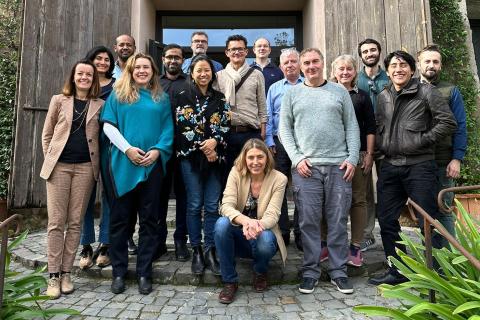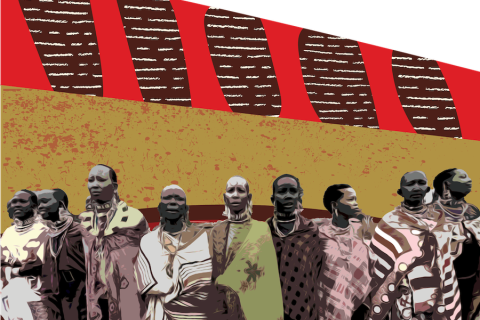Nubian Land: a story of colonialism, discrimination and corruption
Ibrahim has lived on the outskirts of Kenya’s capital city since he was born, 71 years ago. Five generations have lived, loved, studied, worked, and built their homes on this land. He is Kenyan. Proving that to the government and asserting his rights as a citizen, however, has been a life-long struggle.
Unleashing the Data Revolution: Empowering Land Governance through Open Metadata
A new publication titled "The Role of Metadata and Open Data in the Innovation Cycle of Land Administration" puts the spotlight on this dynamic domain. This publication offers valuable insights into the significance of open data and structured metadata, and how they can revolutionize land administration processes worldwide. By delving into the core principles of open data and metadata, this publication offers a comprehensive understanding of how these tools can be leveraged to foster innovation and drive positive change in the land governance sector.
Overcoming Land Disputes by Fostering Relationships in Communities: Experiences from Zambia's Systematic Land Titling Program
Overcoming Land Disputes by Fostering Relationships in Communities: Experiences from Zambia’s Systematic Land Titling Program
Written by Dimuna Phiri and Kamiji Malasha
Unresolved disputes and disorder, can be addressed through the judicial system. However, the process is expensive, slow, unscalable, and does not focus on reconciling individuals, families and communities. Through the lens of beneficiaries, this article reveals the importance of alternative dispute resolution in land reforms, particularly adjudication committees.
The Perceived Conflict Between Open Data and Privacy Concerns in India
The good governance of land is critical to the pursuit of sustainable development. Given that the land sector is often considered to be susceptible to corruption, open and transparent land data is seen as an opportunity to fight corruption. Following global trends, the land sector is increasingly engaging in efforts to make more land and spatial data open and freely available.
CALL FOR PAPERS: Building Power, Deepening Democracy: Global Perspectives on Environmental Justice
Submission Deadline: All manuscripts should be submitted for consideration by December 31, 2021.
The global environmental crisis is intertwined with the crisis of social and economic inequality. From coal plants to palm oil plantations, economic activities that threaten the planet are concentrated in communities with less power and wealth. “You can’t have climate change without sacrifice zones,” writes Hop Hopkins, “and you can’t have sacrifice zones without disposable people.”1
A Global Movement for Environmental Justice
In a recent episode of the podcast Uncharted Ground, host Jonathan Levine spoke with Namati about building a global environmental justice movement. You can find it on any major podcast platform or listen to the episode (and access the full transcript) on Stanford Social Innovation Review's website. A recap of the episode, written by SSIR, is below.
Engaging migrants in natural resource management: Lessons from Indonesia
Environmental policy interventions often result in conflicts because they fail to recognize people’s identity and sense of belongings, as shaped through the places where they live. A recent paper explores a case study of a palm oil project in East Kalimantan, Indonesia, in which competing claims of recognition and land rights have led to conflict between transmigrants and indigenous Kutai people.
Perceptions Data Can Help Us Challenge Sexist Norms Around Land and Housing
On the International Women’s Day – and every day – we must call out gender bias wherever we see it. The trouble is, when it comes to land and property rights, much is hidden behind closed doors. But now, a new survey is giving voice to women around the world, letting them share their perceptions of their property rights.
Women’s legal rights and gender gaps in property ownership in developing countries
On January 24, 2020, a quiet revolution happened in South Africa. In a landmark ruling in the Durban High Court, 72-year old Agnes Sithole scored a legal victory that not only provided her a share of her husband’s estate but may also help to protect an estimated 400,000 black elderly women in South Africa. Facing impoverishment when her marriage ended, Ms.
New threats to resource rights and food security: COVID-19 impact and response
The ongoing pandemic and the formal and informal responses to its spread have very direct impacts on the food and nutrition security of people in all parts of the world. Strong concerns have been voiced that the global health crisis could turn into a global food crisis.




